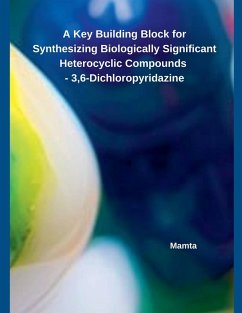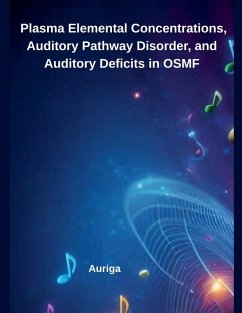
Behavior Of Pimelic And Isophthalic Bis-Hydrazides With Selected Bio-Ligands And Some Central Block Elemental Ions
Versandkostenfrei!
Versandfertig in 1-2 Wochen
36,99 €
inkl. MwSt.

PAYBACK Punkte
18 °P sammeln!
The importance of speciation studies1-4 in all branches of chemistry is beyond doubt. This importance is most evident, however, in biological/ environmental chemistry where speciation of a component plays a fundamental role in determining its mobility, bioavailability and toxicological impact. It is well known that the toxicity of a metal in natural aquatic environments is determined by the activity of the particular metal species causing the toxic effect and not by its total concentration. Most heavy elements are toxic to life when they enter the human body in different forms while some other...
The importance of speciation studies1-4 in all branches of chemistry is beyond doubt. This importance is most evident, however, in biological/ environmental chemistry where speciation of a component plays a fundamental role in determining its mobility, bioavailability and toxicological impact. It is well known that the toxicity of a metal in natural aquatic environments is determined by the activity of the particular metal species causing the toxic effect and not by its total concentration. Most heavy elements are toxic to life when they enter the human body in different forms while some other metal ions are considered essential, but can become toxic when found in the body more than needed. Many of these effects depend strongly on the particular form in which the element is present in the system. Often these different chemical forms of a particular element or its compounds are referred to as "species". The term "Chemical species" was defined 5 in "IUPAC Recommendations- 2000" as "a specific form of an element defined as to isotopic composition, electronic or oxidation state, and/or complex or molecular structure". Chemical speciation is "the distribution of an element amongst defined chemical species in a system". Speciation analysis is "the analytical activity of identifying and /or measuring the quantities of one or more individual chemical species in a sample". Since conditions in natural systems vary greatly in terms of composition, ionic strength and temperature, which affect the composition and extent of formation of various species, it is necessary to use a different set of species every time a new system is examined.












